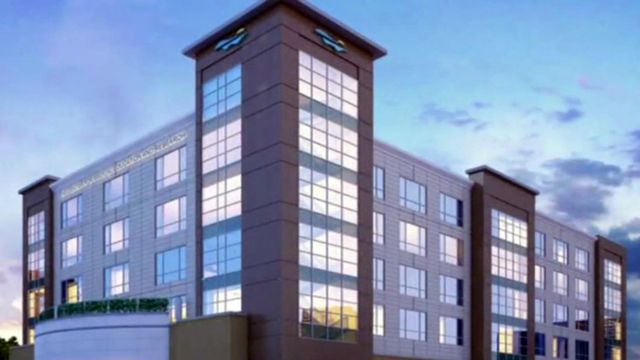Cape Fear Valley Health trying to dig way out of doctor shortage
After years of planning, Cape Fear Valley Health System in Fayetteville is on the brink of solving a doctor shortage in the region.
Posted — UpdatedThe hospital system broke ground Thursday on its new Center for Medical Education and Research building, which officials said will produce 900 physicians over the next 10 years.
The center, which is being developed in partnership with Campbell University, will allow Cape Fear Valley's residency program to more than double in size, attracting more physicians and specialists to the region.
"When you train residents in a place or a place close to a rural areas, that serve rural areas, the residents stay in that area to continue to serve rural areas," said Dr. Donald Maharty, regional associate dean of Campbell's Jerry M. Wallace School of Osteopathic Medicine and a family physician who practices at Cape Fear Valley.
"At least 2,000 physicians, by 2030 in primary care alone, will be needed, especially in the rural areas of North Carolina," Maharty added.
"This residency program, this fellowship program is going to solve that problem," said Mike Nagowski, chief executive of Cape Fear Valley Health. "It won't happen overnight, but you watch. Ten years from now, the majority of doctors in this region are going to be graduates of these residency programs."
"We've had major shortages in physicians, in availability, for a number of years, and this is our great effort going forward to help fill those gaps," said Dr. Sandra Carr Johnson, chairwoman of the Cape Fear Valley Health Board of Trustees.
The five-story, 120,000-square-foot building is expected to open by late 2022 on Melrose Road, near the old entrance to Cape Fear Valley Medical Center's emergency room.
"It will contain all the state-of-the-art learning environment from simulation laboratories so that the residents can actually practice things like, how do you deliver a baby, how do you handle somebody who's having a stroke," Nagowski said.
Related Topics
• Credits
Copyright 2024 by Capitol Broadcasting Company. All rights reserved. This material may not be published, broadcast, rewritten or redistributed.





